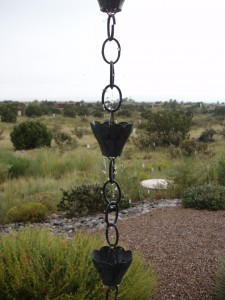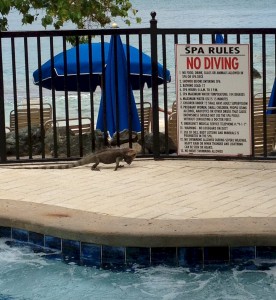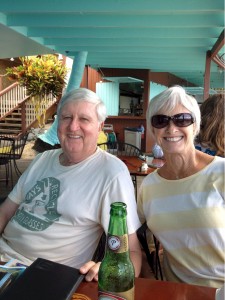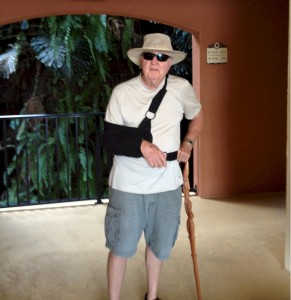 This pic doesn’t quite accomplish what I’d hoped, but it’s in the neighborhood. Still kind of cool.
This pic doesn’t quite accomplish what I’d hoped, but it’s in the neighborhood. Still kind of cool.
I had this friend in college who was a talented artist and cartoonist. He was celebrated, even, on our campus for the strip he did for our college newspaper. Now, I’ve long had a thing about collecting talented people. I just love people who are passionate about their work. Beginning with my first real high school boyfriend – who had an amazing tenor voice – I developed this, um, method of kinda sorta stalking these people and coaxing them into being my friends. I did it with this cartoonist, too. We became very close friends.
At one point, he visited me at my parent’s home in Denver. My mom was volunteering for the Cancer Society then and was on the committee to put on their first big fundraising ball. She was in charge of invitations and asked my friend if he’d be willing to draw a little something for the invitation.
He said no. That he was a professional artist and therefore did not work for free.
Yes. I was furious with him.
And, in many ways, it changed our friendship forever.
Now, I’m a huge proponent of the concept that a professional does not work for free. We all know how prevalent this is in the writing community. There are tons of opportunities to write for free, or for copies, or “for the exposure.” I hate, really, how many new authors get suckered into writing for virtually nothing because they’re so very anxious for the validation. Not that I don’t totally understand – I do – but it’s rarely true validation if no one is coughing up money.
Mostly, I’ve had a rule that I only work for paying markets. Exceptions to this are high-profile opportunities, like prestigious literary magazines (that aren’t for-profit businesses anyway) and out of the goodness of my heart.
This is a real thing. Some people call it charity. Some call it “having a volunteer ethic.”
I come from a family that believes strongly in the volunteer ethic – hence my mom volunteering for the Cancer Society. I have some other friends that have it, too, regardless of religious background. It’s the idea that you owe it to the world to give something of your gifts back to it. To give generously of your talents, without the need for remuneration or attention, just for the joy of it.
I think that’s why that moment changed my friendship. Of course, I would have understood if he was too busy or didn’t support the mission of the charity. There are gracious ways to communicate that. But to refuse to give such a small gift of himself, well…. I never saw him the same way again.
So, yes – operate like a professional. Demand the proper remuneration for your work. Know what you’re worth.
And when you give it away – do it with an open heart.



















